
How To Setup Epicor Magento Integration For Ecommerce Store?
Looking to streamline your e-commerce operations? Epicor Magento allows businesses to connect their ERP system with their online store. This integration ensures smooth data flow between inventory, orders, and customer information.
This tutorial will cover how to set up Epicor Magento Integration for your store. You'll learn the necessary processes to connect both platforms.
Key Takeaways
-
What is Epicor Magento Integration?
-
3 Methods to Integrate Epicor Commerce with Magento
-
How Epicor Magento Integration Works
-
Benefits of Magento Epicor Integration
-
Top Tools to Integrate Epicor and Magento
What is Epicor Magento Integration?
Epicor Magento Integration connects Epicor ERP with Magento ecommerce platforms.
This integration links enterprise resource planning (ERP) and digital commerce systems. It allows businesses to streamline operations. It connects their back-end ERP and online storefront.
The integration synchronizes data between Epicor and Magento. It includes product information, inventory levels, pricing, customer data, and orders. It automates data exchange. It reduces manual data entry. It also minimizes potential errors.
For B2B companies, this integration can handle complex pricing structures. It manages customer-specific pricing. It can also handle multiple ship-to and bill-to locations. These are managed for each customer account.
By connecting Epicor ERP and Magento ecommerce, businesses create a seamless information flow. This integration provides a single source of truth for all business data. It enables companies to focus on core activities through the use of an ERP platform. It also supports business growth.
Benefits of Magento Epicor Integration
1. Workflow Automation
-
Reduces manual data entry between systems.
-
Streamlines processes across Epicor ERP and Magento.
-
Improves efficiency in daily operations.
-
Allows staff to focus on core business activities by leveraging the Epicor ERP solution.
-
Minimises errors in data transfer.
2. Customer Management
-
Synchronises customer data between Epicor and Magento.
-
Provides a unified view of customer information through the Epicor eCommerce integration.
-
Enhances customer service with access to complete records within Epicor.
-
Improves user experience on the ecommerce platform.
-
Manages customer billing and shipping details efficiently.
3. Product Management:
-
Centralizes product data across systems.
-
Ensures consistent product information in Epicor and Magento.
-
Simplifies updates to product descriptions and details.
-
Manages inventory levels accurately.
-
Supports complex product configurations with Epicor CPQ.
4. Order Management:
-
Automates order processing from Magento to Epicor.
-
Provides real-time visibility of order status.
-
Improves order fulfilment speed and accuracy.
-
Streamlines handling of sales orders.
-
Enhances the tracking of shipping details.
5. Pricing Management:
-
Ensures pricing consistency across platforms.
-
Supports complex pricing structures.
-
Allows for customer-specific pricing within the Epicor eCommerce framework.
-
Enables quick updates to pricing information.
-
Improves accuracy in quoting and invoicing.
3 Methods to Integrate Epicor Commerce with Magento
1. Epicor Commerce Connect (ECC)
ECC is a native Epicor solution for ecommerce integration. It offers direct connectivity between Epicor ERP and Magento. ECC provides seamless data flow between systems. It handles product information, pricing, and order processing. ECC supports various versions of Magento, including Magento 2. It offers user-friendly tools for managing the integration process. ECC allows businesses to focus on core operations. It automates many aspects of ecommerce management.
2. Third-party connectors
These are pre-built integration tools from certified partners. They offer ready-to-use solutions for connecting Epicor and Magento. Third-party connectors often support multiple versions of both systems. They can handle complex business operations efficiently with the ERP 10 system. These connectors may offer features like real-time data synchronization. They often provide user-friendly interfaces for managing the integration. Third-party solutions may offer quicker implementation than custom options.
3. Custom API integration
Custom API integration involves creating a tailored solution using Epicor and Magento APIs. It offers the most flexibility for specific business needs. Custom integration can address unique requirements not met by other methods. It allows for precise control over data flow and business logic. This approach may require more development time and resources. It often involves working with experienced Epicor and Magento developers. Custom API integration can adapt to complex ERP systems and ecommerce operations.
How Epicor Magento Integration Works?
Step 1: Select Integration Method
-
Epicor Commerce Connect (ECC)
-
Third-Party Connectors
-
Custom API Integration
Step 2: Verify System Requirements
-
Check Epicor version compatibility. (e.g., Epicor 10, Epicor 9)
-
Confirm the Magento version. (e.g., Magento 2, Adobe Commerce)
-
Review hardware and software requirements.
-
Consider consulting a Magento developer if needed.
Step 3: Choose Integration Approach
-
Point-to-Point:
-
Direct connection between Epicor and Magento.
-
Best for simple integrations with few systems.
-
-
Enterprise Service Bus (ESB):
-
Communication layer between systems.
-
Suitable for multiple system integrations.
-
-
Integration Platform as a Service (iPaaS):
-
Cloud-based integration solution.
-
Offers scalability and pre-built connectors.
-
Top Tools to Integrate Epicor and Magento
1. DCKAP Integrator
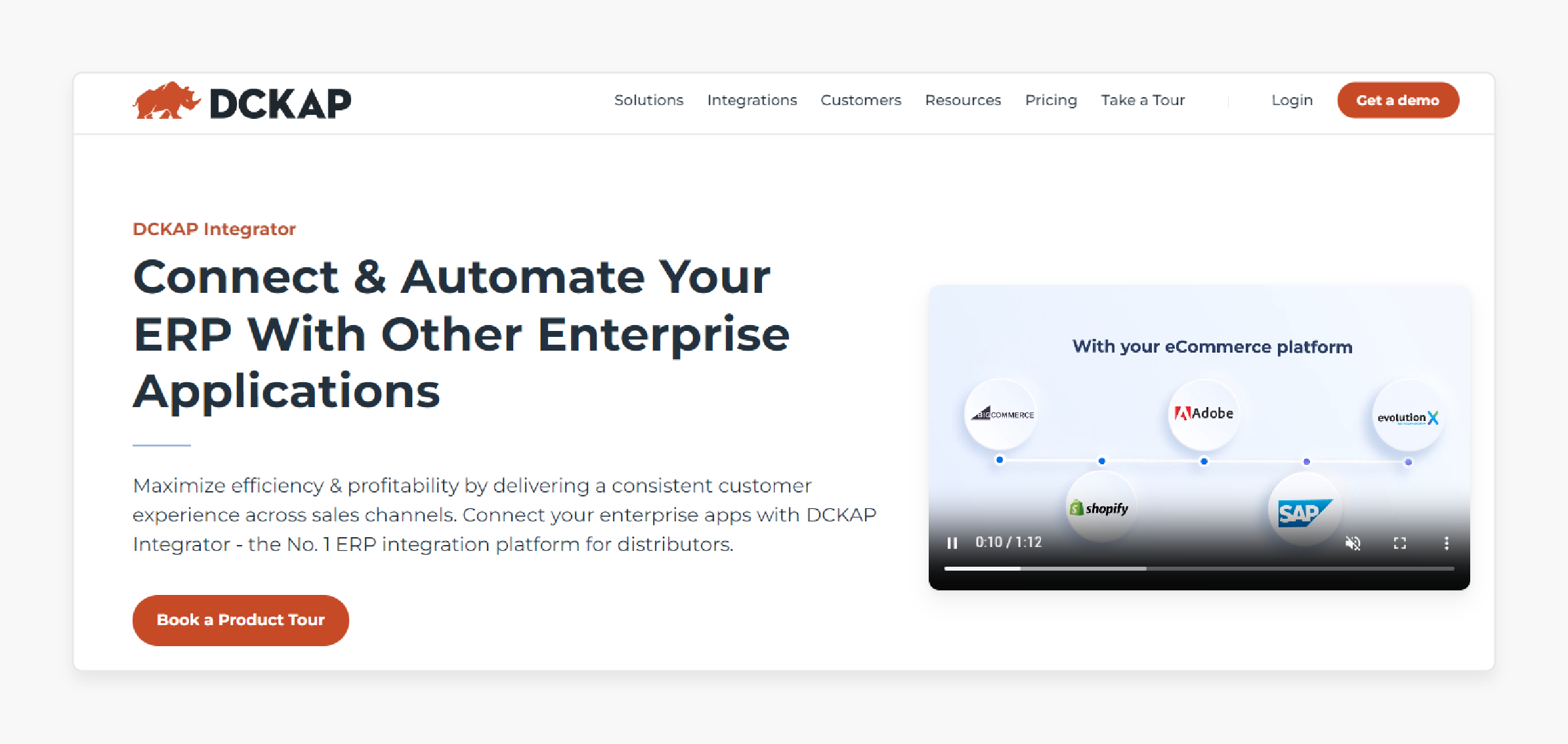
DCKAP Integrator is a specialized solution. It is designed to connect Epicor ERP systems with Magento ecommerce platforms seamlessly. It focuses on maintaining data consistency across both systems. It also aims for operational efficiency within Epicor.
Key Features:
• Automated data synchronization
• Real-time inventory updates are essential for the Magento system.
• Order status tracking
• Product information management
• Customer data integration
2. Jitterbit
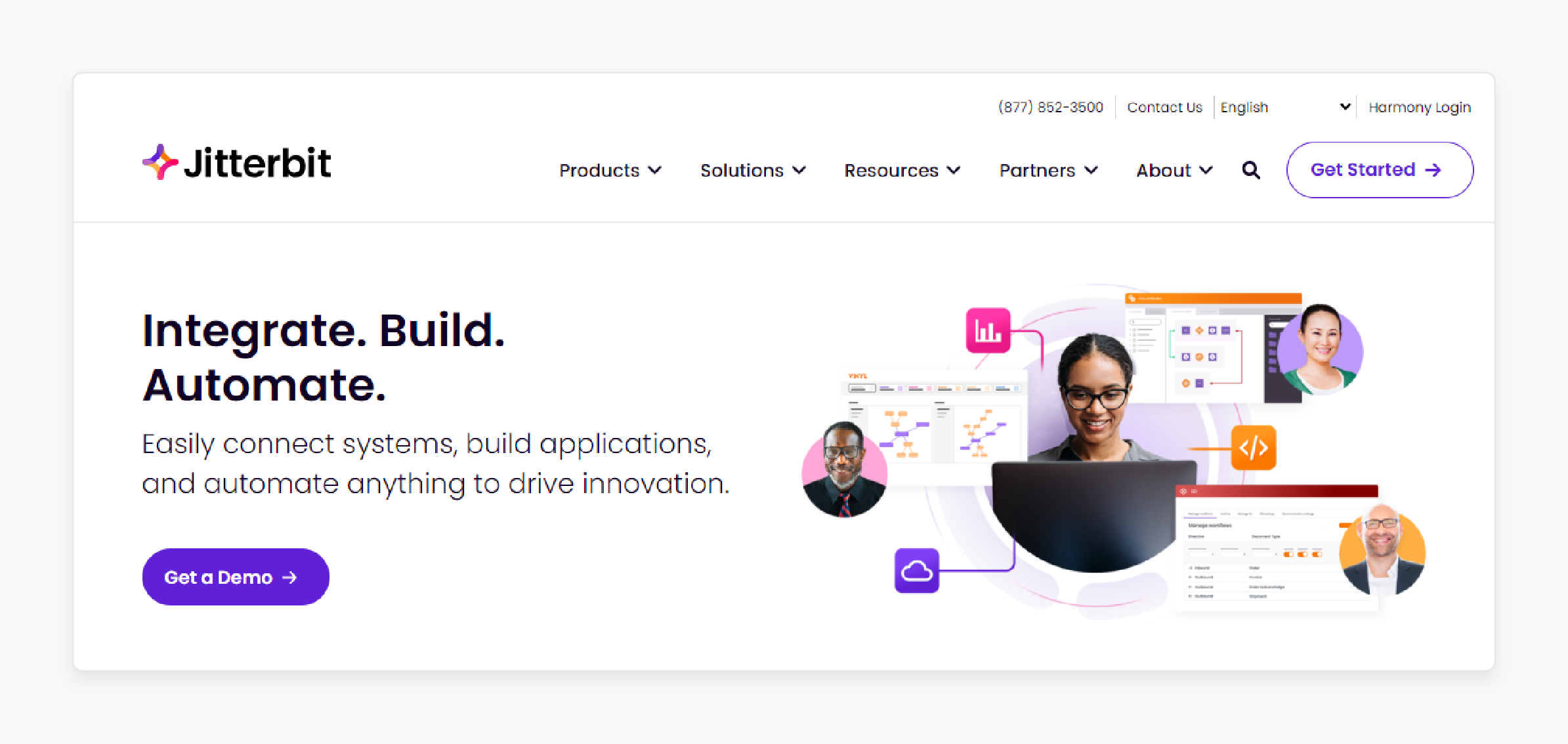
Jitterbit is a versatile integration platform. It extends beyond basic ERP and ecommerce connections. It offers a comprehensive suite of tools. These tools are for creating a fully integrated business ecosystem.
Key Features:
• API management and creation
• Advanced data mapping tools
• Workflow automation
• Pre-built connectors for various systems
• Cloud and on-premise deployment options
3. MuleSoft
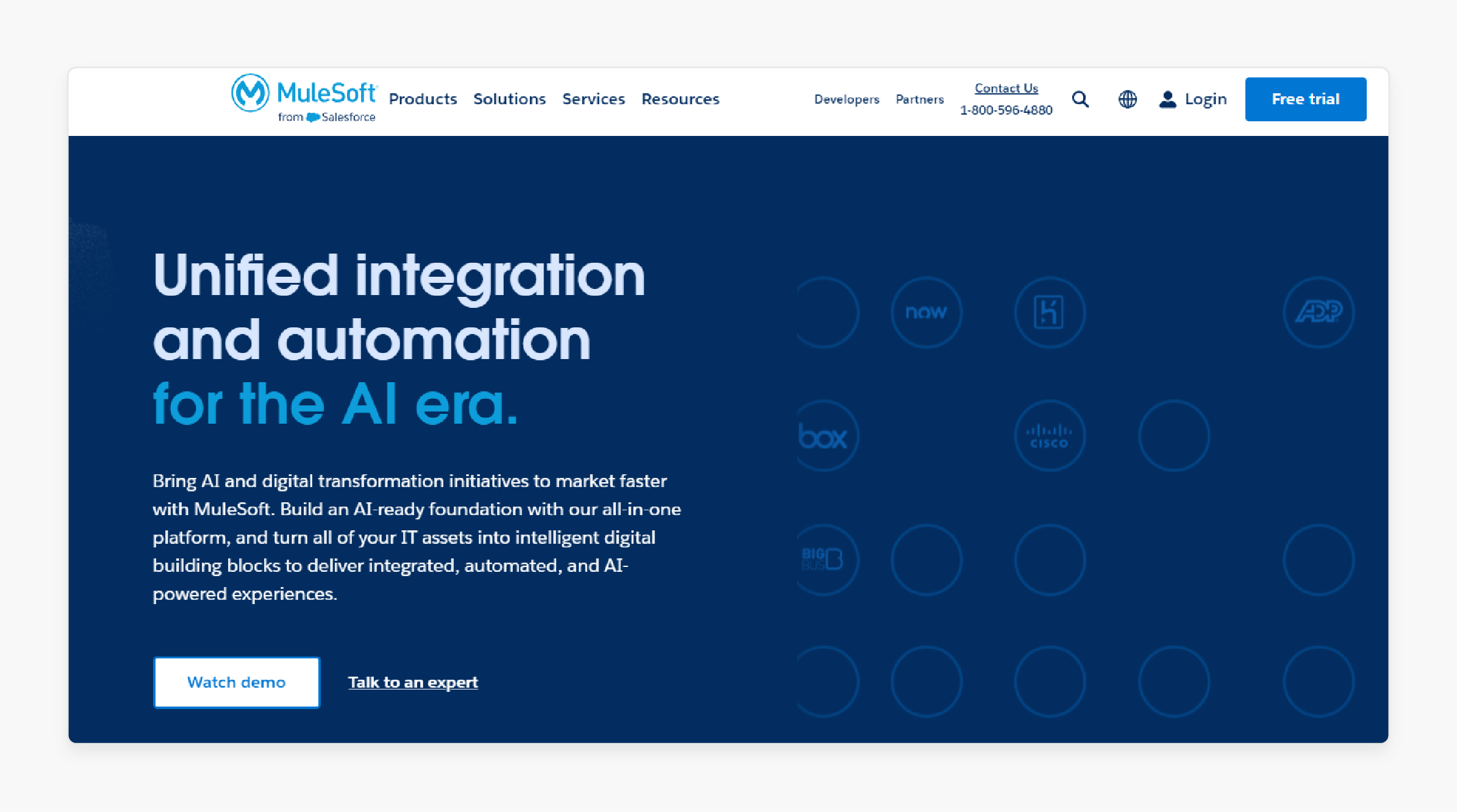
MuleSoft provides an enterprise-grade integration platform. It is suitable for complex integrations. It can handle large-scale Epicor and Magento integrations. It emphasizes flexibility, scalability, and security in its approach.
Key Features:
• API-led connectivity
• Scalable architecture
• Extensive integration options
• Robust security features
• Compliance with data protection regulations
4. Celigo
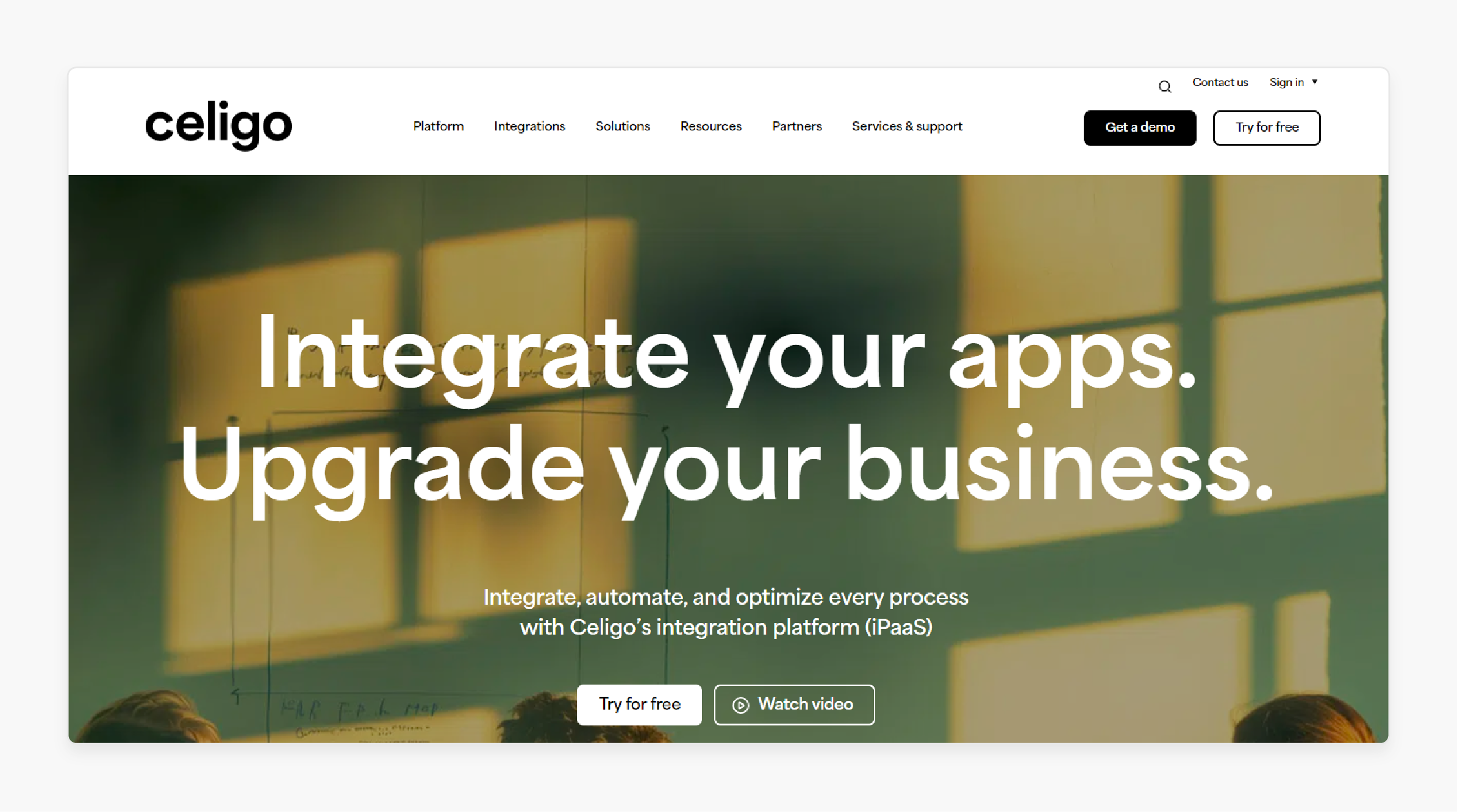
Celigo offers an iPaaS solution. This stands for Integration Platform as a Service. Their solution is specifically designed for connecting ERP systems with ecommerce platforms. An example of an ERP system is Epicor. An example of an ecommerce platform is Magento. It balances ease of use with powerful customization options.
Key Features:
• Pre-built integration flows
• Customizable data mappings
• Real-time error handling and notifications
• User-friendly interface
• Ongoing support and upgrades
5. Integrate.io
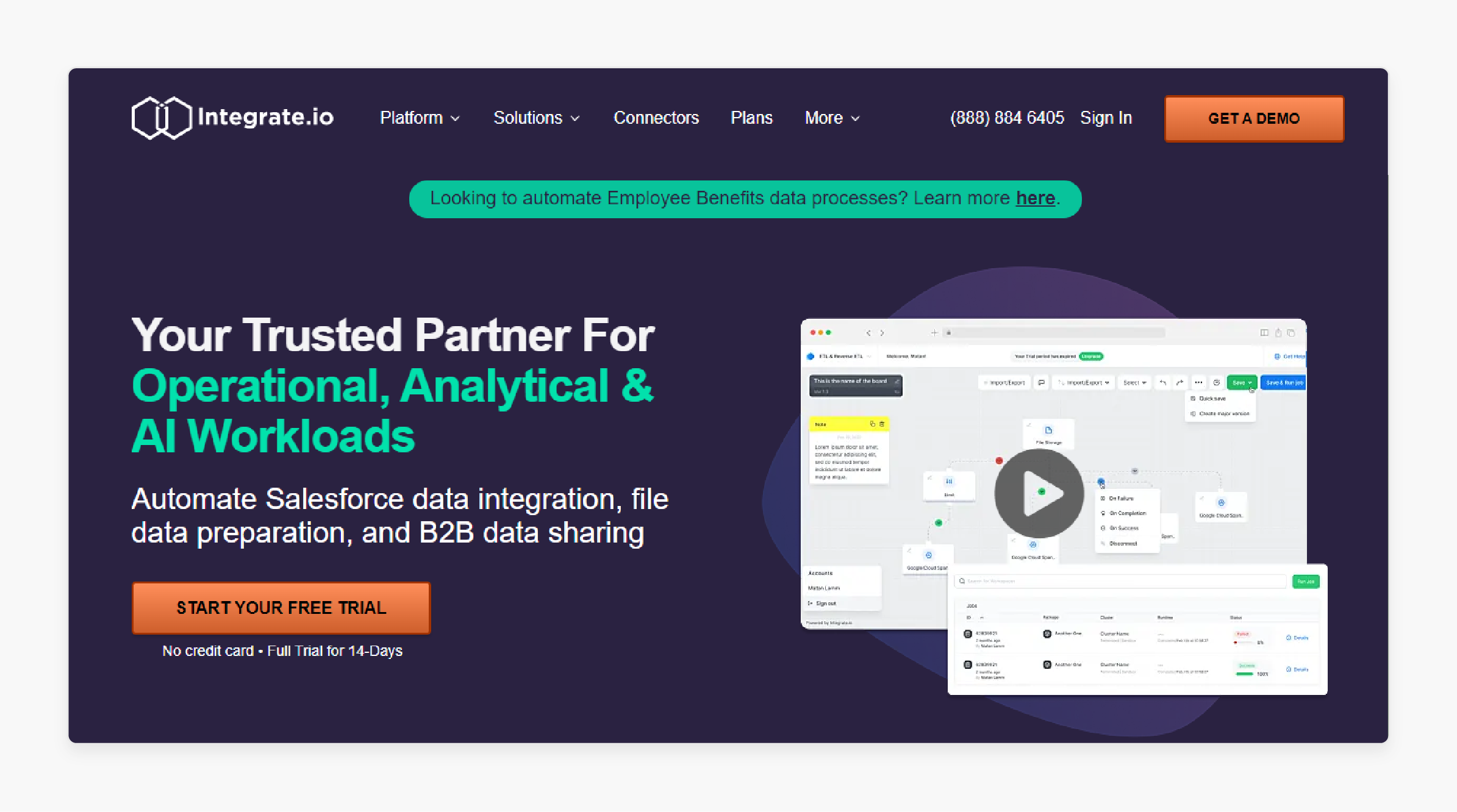
Integrate.io is a data integration platform. It specialises in ETL (Extract, Transform, Load) processes. It excels in handling large volumes of data. It also manages complex transformations between Epicor and Magento.
Key Features:
• ETL processes
• Data warehouse integration
• Visual data pipeline builder
• Real-time and batch processing
• Extensive data transformation capabilities
Epicor Magento Integration Success Case Studies
1. Zoro Tools UK
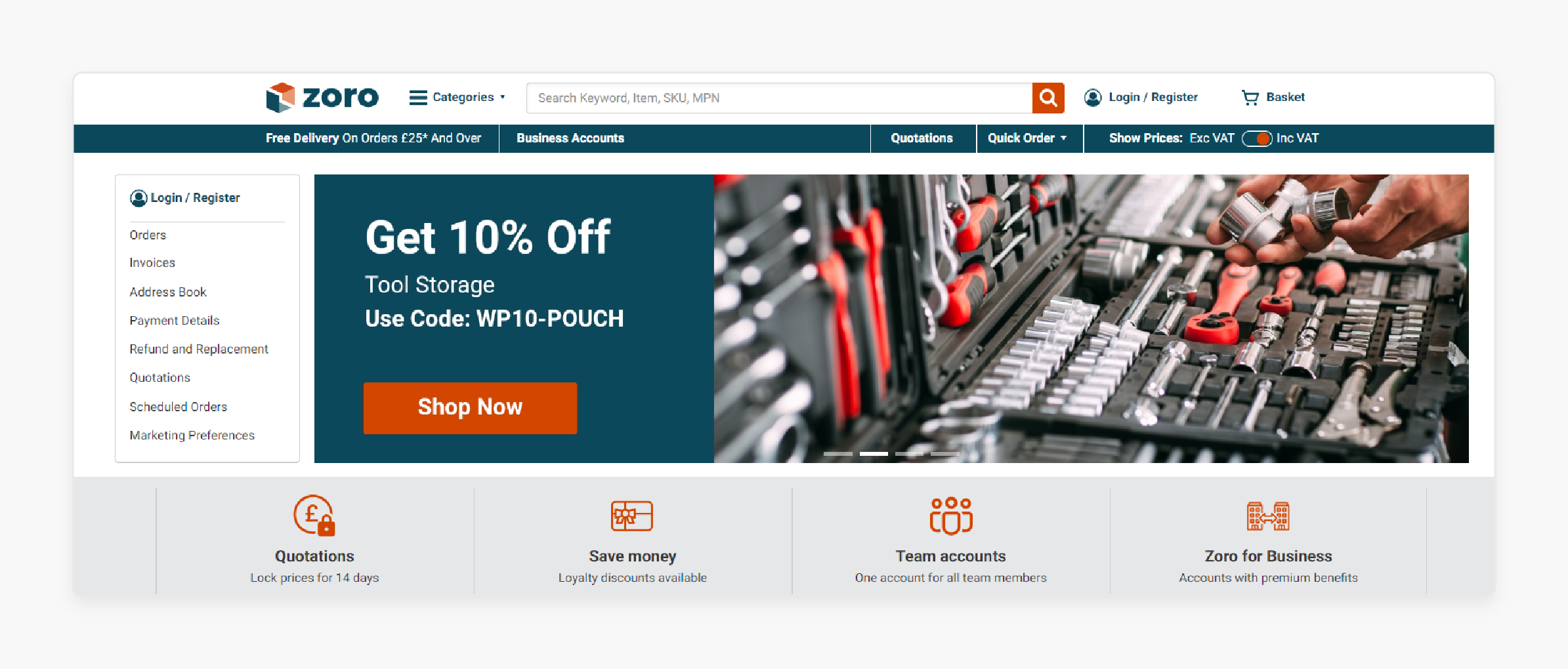
Zoro Tools UK is a leading supplier of industrial supplies and equipment. They offer a wide range of products to businesses across the United Kingdom. The company struggled with inefficient operations due to disconnected systems. Manual data entry is required. It was between their Epicor Prophet 21 ERP and their ecommerce platform. It led to inventory discrepancies and slow order processing.
Zoro Tools UK implemented an integration between Epicor Prophet 21 and Magento 2. This solution included:
-
Real-time synchronization of inventory and pricing data.
-
Automated order processing and fulfilment workflows.
-
Unified customer data management across both systems.
2. Triad Magnetics
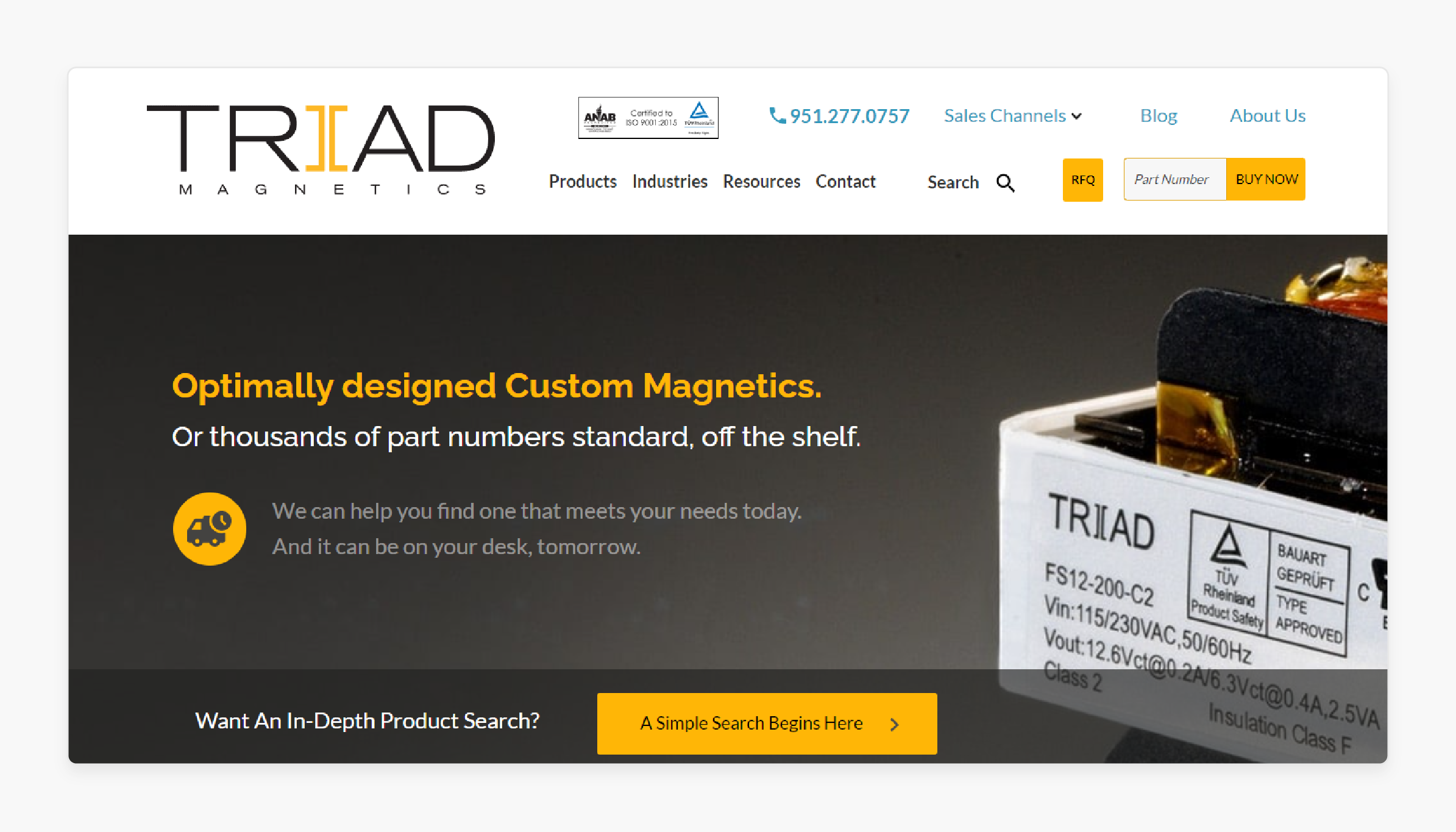
Triad Magnetics is a manufacturer of electronic components. They specialize in transformers and power supplies for various industries. The company utilizes Epicor software for its operations. Triad faced difficulties managing separate B2B and B2C operations. This led to inconsistent pricing and product information across channels.
Triad Magnetics integrated their Epicor ERP with a Magento ecommerce platform. Key features included:
-
Customer-specific pricing and catalog management.
-
Integration of complex product configurations.
-
Unified B2B and B2C operations under a single system.
FAQs
1. What is Epicor Magento Integration?
Epicor Magento Integration is a process. It connects your Epicor ERP system with your Magento ecommerce platform. This integration aims to streamline business operations. It also improves data accuracy. It automates various processes between the two systems.
2. How can I achieve successful ERP integration with Magento 2?
To achieve successful ERP integration with Magento 2, you need to consider several factors. First, choose the right integration method. It should align with your business requirements. Next, invest in Epicor training. Finally, consider consulting with experts. It could be an Epicor representative or a third-party integration specialist.
3. What are the benefits of integrating Epicor ERP with Magento 2?
Integrating Epicor ERP with Magento 2 offers numerous benefits. These include enhanced data accuracy and improved inventory management. It also allows for automated order processing. It enables you to focus on your core business. This is achieved by eliminating manual data entry tasks.
4. What are the integration options available for connecting Epicor ERP with Magento 2?
There are several integration options for connecting Epicor ERP with Magento 2. These include using a Magento 2 connector and employing middleware solutions. These methods facilitate data exchange between the two systems.
5. How does the Epicor Magento 2 integration improve business operations?
The Epicor Magento 2 integration improves business operations. It automates processes such as order fulfilment, inventory updates, and customer data synchronization. This leads to better efficiency and reduced errors.
6. Is Epicor Magento 2 integration suitable for all types of ecommerce stores?
Epicor Magento 2 integration is suitable for various types of ecommerce stores. It is true regardless of size. It can be customized to meet the specific needs of different businesses. It can also be adapted for various industries using the Epicor Eclipse system.
7. How long does it take to integrate Magento and Epicor ERP?
The time required to integrate Magento and Epicor ERP varies. It depends on several factors. These include the complexity of your business operations. The chosen integration method is also important. The level of customization needed affects the timeline as well. It can range from a few weeks to several months.
Summary
Epicor Magento Integration connects Epicor ERP systems with Magento e-commerce platforms. It streamlines operations by automating data exchange. It includes inventory, orders, and customer data. The integration reduces manual entry and errors. Here's a quick recap of what this integration offers:
-
Seamlessly connect your ERP and e-commerce platform. Automate data exchange between systems. It includes inventory, orders, and customer information.
-
Choose from multiple integration options. Epicor Commerce Connect (ECC) offers native integration. Third-party connectors provide ready-to-use solutions.
-
Synchronize various data types across systems. It includes customer data, product information, orders, and pricing.
-
Leverage powerful tools for integration. Options include DCKAP Integrator, Jitterbit, MuleSoft and Celigo.
Explore managed Magento hosting to enhance performance with Epicore integration.






